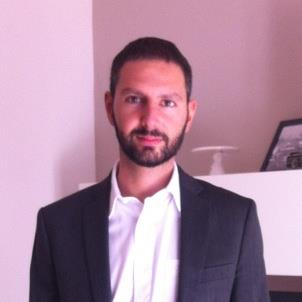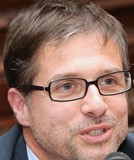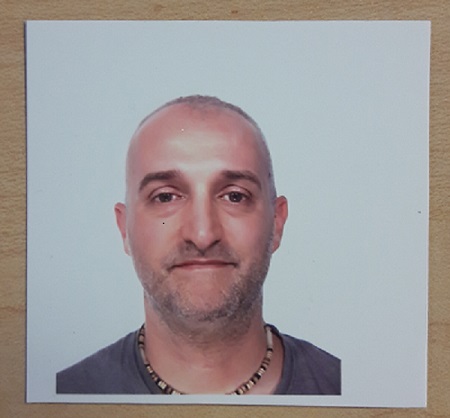Studying at the University of Verona
Here you can find information on the organisational aspects of the Programme, lecture timetables, learning activities and useful contact details for your time at the University, from enrolment to graduation.
Academic calendar
The academic calendar shows the deadlines and scheduled events that are relevant to students, teaching and technical-administrative staff of the University. Public holidays and University closures are also indicated. The academic year normally begins on 1 October each year and ends on 30 September of the following year.
Course calendar
The Academic Calendar sets out the degree programme lecture and exam timetables, as well as the relevant university closure dates..
| Period | From | To |
|---|---|---|
| Sem. 1A | Oct 1, 2012 | Nov 18, 2012 |
| Sem. 1B | Nov 19, 2012 | Jan 20, 2013 |
| Sem. IIA | Feb 25, 2013 | Apr 21, 2013 |
| Sem. IIB | Apr 22, 2013 | Jun 9, 2013 |
| Session | From | To |
|---|---|---|
| Sessione Estiva (Esami sospesi dal 16 al 19 luglio) | Jun 10, 2013 | Jul 31, 2013 |
| Sessione Autunnale | Sep 1, 2013 | Sep 30, 2013 |
| Sessione Invernale | Jan 20, 2014 | Feb 23, 2014 |
| Session | From | To |
|---|---|---|
| Sessione Estiva | Jul 16, 2013 | Jul 19, 2013 |
| Sessione Autunnale | Nov 12, 2013 | Nov 15, 2013 |
| Sessione invernale | Mar 21, 2014 | Mar 21, 2014 |
| Period | From | To |
|---|---|---|
| Festa di Ognissanti | Nov 1, 2012 | Nov 1, 2012 |
| Festa dell'Immacolata Concezione | Dec 8, 2012 | Dec 8, 2012 |
| Vacanze Natalizie | Dec 21, 2012 | Jan 6, 2013 |
| Vacanze Pasquali | Mar 29, 2013 | Apr 2, 2013 |
| Festa della Liberazione | Apr 25, 2013 | Apr 25, 2013 |
| Festa dei Lavoratori | May 1, 2013 | May 1, 2013 |
| Festa del Santo Patrono di Verona S. Zeno | May 21, 2013 | May 21, 2013 |
| Festa della Repubblica | Jun 2, 2013 | Jun 2, 2013 |
| Vacanze Estive | Aug 9, 2013 | Aug 16, 2013 |
Exam calendar
Exam dates and rounds are managed by the relevant Humanistic Studies Teaching and Student Services Unit.
To view all the exam sessions available, please use the Exam dashboard on ESSE3.
If you forgot your login details or have problems logging in, please contact the relevant IT HelpDesk, or check the login details recovery web page.
Should you have any doubts or questions, please check the Enrollment FAQs
Academic staff
 stefania.annechini@univr.it
stefania.annechini@univr.it
 chiara.benedetti@univr.it
chiara.benedetti@univr.it
 gaia.cetrano@univr.it
gaia.cetrano@univr.it
 roberto.dallachiara@univr.it
roberto.dallachiara@univr.it
Frighetto Roberta
 roberta.frighetto@univr.it
roberta.frighetto@univr.it
 annamaria.giarola@univr.it
annamaria.giarola@univr.it
 mauro.niero@univr.it
mauro.niero@univr.it
Povolo Luciana
Strano Silvana
 silvana.stranoligato@univr.it
silvana.stranoligato@univr.it
 +39 045 8028856
+39 045 8028856
 giorgio.zoccatelli@univr.it
giorgio.zoccatelli@univr.it
Study Plan
The Study Plan includes all modules, teaching and learning activities that each student will need to undertake during their time at the University.
Please select your Study Plan based on your enrollment year.
1° Year
| Modules | Credits | TAF | SSD |
|---|
Lingua straniera - Certificazione CLA livello B1 (completo)2° Year activated in the A.Y. 2013/2014
| Modules | Credits | TAF | SSD |
|---|
3° Year activated in the A.Y. 2014/2015
| Modules | Credits | TAF | SSD |
|---|
Un insegnamento a scelta tra i seguenti| Modules | Credits | TAF | SSD |
|---|
Lingua straniera - Certificazione CLA livello B1 (completo)| Modules | Credits | TAF | SSD |
|---|
| Modules | Credits | TAF | SSD |
|---|
Un insegnamento a scelta tra i seguentiLegend | Type of training activity (TTA)
TAF (Type of Educational Activity) All courses and activities are classified into different types of educational activities, indicated by a letter.
Family and social policies (2013/2014)
The teaching is organized as follows:
Learning outcomes
Module: SOCIOLOGIA DELLA FAMIGLIA
-------
The course aims to give the students critical tools for reading and interpretation of the relationship between families and social policies. In a mediterranean model of welfare system, which is anchored and has played on the family as a private producer of goods and services of 'public importance' (with a strong impact on the level of welfare of the community), the trends of change in families change their social role. The families face increasing difficulties in carrying out their duties of care. The lack of social policies for the family, however, constitute one of the factors that most affected the increasing difficulties that families face in carrying out their duties of care.
Module: POLITICA SOCIALE
-------
The course aim to give some critical tools for the study of social policies and Welfare State. After a storical introduction, particular attention will be devoted to discuss the relationship between the Welfare State and the inclusive (or exclusive) social, economic and political processes. The course will analyses also the rise of economic inequality in Italy and Europe, with a particular attention to relationship between the Welfare State and new forms of capitalism.
Module: PROBLEMATICHE MINORILI
-------
Program
Module: SOCIOLOGIA DELLA FAMIGLIA
-------
An analysis of economic, social, cultural and political factors will be developed to focus the dynamics of the social change. In particular, one will put attention to the processes of individualization and the movements between the private/public sphere, and their influence on the relations and the inter-generational ties, creating new familiar configurations. Particular attention will be devoted to the lack of social policies for the family, which emphasizes the processes of increasing privatization and individualization of family relationships. Reflections on changing families will be brought back within the broader framework of policy change in local welfare system.
Module: POLITICA SOCIALE
-------
After a brief storical introduction, the course will discuss about the concept of "citizenship" and about the role of some principal Welfare State systems (Universal model, Occupational model, Mediterranean model) in social inclusion-exclusion processes. The course will developed also an analysis about the most important Welfare State sectors (Health system, Social security, Labour and Housing Policies, Family and Early Childhood services). Finally, the course will discuss on the changing of capitalism and the rise of inequality in Italy and in Europe and their consequences on the citizenship rights.
Bibliography:
- Ferrera M. (a cura di), Le politiche sociali, il Mulino, Bologna, 2012.
- Saraceno C., Il Welfare. Modelli e dilemmi della cittadinanza sociale, il Mulino, Bologna, 2013.
Module: PROBLEMATICHE MINORILI
-------
Examination Methods
Module: SOCIOLOGIA DELLA FAMIGLIA
-------
Oral exam
Module: POLITICA SOCIALE
-------
Oral examination.
Module: PROBLEMATICHE MINORILI
-------
Oral exam
Type D and Type F activities
Modules not yet included
Career prospects
Module/Programme news
News for students
There you will find information, resources and services useful during your time at the University (Student’s exam record, your study plan on ESSE3, Distance Learning courses, university email account, office forms, administrative procedures, etc.). You can log into MyUnivr with your GIA login details: only in this way will you be able to receive notification of all the notices from your teachers and your secretariat via email and soon also via the Univr app.
Student mentoring
Linguistic training CLA
Gestione carriere
Practical information for students
Documents
| Title | Info File |
|---|---|
|
|
pdf, it, 325 KB, 02/05/23 |
|
|
pdf, it, 212 KB, 02/05/23 |
|
|
pdf, it, 131 KB, 02/05/23 |
Graduation
Documents
| Title | Info File |
|---|---|
|
|
pdf, it, 99 KB, 13/10/23 |
|
|
pdf, it, 101 KB, 10/04/24 |
List of theses and work experience proposals
| theses proposals | Research area |
|---|---|
| Proposta tesi | Various topics |
Assistente Sociale
Comune e Università di Verona collaborano per la formazione alla professione di assistente sociale.
Professione Assistente Sociale
Pagina aggiornata il 18/1/2022
Stage e Tirocini
Le attività̀ di tirocinio degli studenti si svolgono presso strutture esterne, convenzionate con l’Università degli Studi di Verona ai sensi delle vigenti disposizioni in materia. Nelle strutture esterne gli studenti svolgono le attività di tirocinio sotto la responsabilità di un assistente sociale (Tutor-supervisore), appartenente a dette strutture, coordinato a sua volta dal responsabile del tirocinio presso il Corso di Studio.
In assenza di un assistente sociale, operante nella struttura esterna, il Collegio didattico, per quanto di competenza, decide, su proposta dei responsabili del tirocinio, in ordine alle condizioni per l’effettuazione o la prosecuzione delle attività di tirocinio degli studenti interessati. Le attività di tirocinio sono obbligatorie per almeno 450 ore.
Il Collegio didattico, in deroga alle disposizioni del presente articolo, può consentire a studenti che si trovino in particolari condizioni, in specie se disabili, lavoratori o impegnati in organismi collegiali dell’Università degli Studi di Verona, di non ottemperare in parte all’obbligo di frequenza alle attività di tirocinio, predisponendo forme alternative di tirocinio, anche tramite supporti telematici e multimediali interattivi.
I responsabili delle attività di tirocinio presso il Corso di Studio, anche avvalendosi di appositi collaboratori o tutori esterni, accertano la presenza degli studenti presso le rispettive strutture. A tal fine utilizzano un apposito libretto di frequenza per ciascuno studente.
Al termine dell’attività di tirocinio, lo studente deve presentare una relazione scritta al responsabile di tale attività presso il Corso di Studio. Lo studente elabora la relazione scritta, controfirmata dal Tutor-supervisore. La relazione finale viene valutata dal responsabile del tirocinio presso il Corso di Studio e deve tenere conto degli obiettivi prefissati dal Collegio didattico.
La valutazione viene attribuita al tirocinio nel seguente modo: sufficiente = 1; buono = 2; ottimo = 3; eccellente = 4 e verrà aggiunta alla media dei voti del curriculum al momento della discussione della tesi.
Gli Uffici della Direzione Didattica e Servizi agli Studenti predispongono la documentazione necessaria allo svolgimento delle attività̀ di tirocinio, comprese attestazioni e certificazioni.
Nel caso in cui lo studente partecipi a programmi di mobilità internazionale, le attività̀ di tirocinio vengono regolamentate come segue:
A – Lo studente svolge il Tirocinio presso la sede estera.
Se lo studente svolge il Tirocinio all’estero si ritengono assolti gli obbligo relativi al Laboratorio se:
- - lo studente aggiorna il proprio docente/tutor con brevi relazioni mensili da inviare mezzo mail, sull’andamento del lavoro svolto presso la sede estera;
- - produce una relazione finale completa del tirocinio svolto.
La valutazione finale del laboratorio di guida al tirocinio sarà̀ effettuata da parte del tutor del laboratorio sulla base della relazione dello studente tenendo conto della eventuale valutazione da parte del supervisore estero.
B – Lo studente non svolge il Tirocinio presso la sede estera.
Se lo studente non svolge il Tirocinio nella sede estera e lo deve fare al rientro:
lo studente effettua uno/due incontri individuali iniziali con il docente/tutor in cui predisporre quanto necessita per l’avvio del tirocinio e nei quali verranno forniti materiali, griglie ed eventuali testi di riferimento;
invia brevi relazioni mensili sull’andamento del tirocinio che sarà svolto in Italia al di fuori del periodo in cui si tiene il laboratorio di guida al tirocinio;
produce la relazione finale completa del tirocinio svolto”.
- Tutte le informazioni in merito agli stage per futuri studenti sono disponibili alla pagina Stage e tirocini.
- Tutte le informazioni in merito agli stage per studenti iscritti sono pubblicate in MyUnivr - come fare per - stage e tirocini.
- Tutte le informazioni in merito agli stage per le aziende sono disponili alla pagina Stage e tirocini per azienze.



















